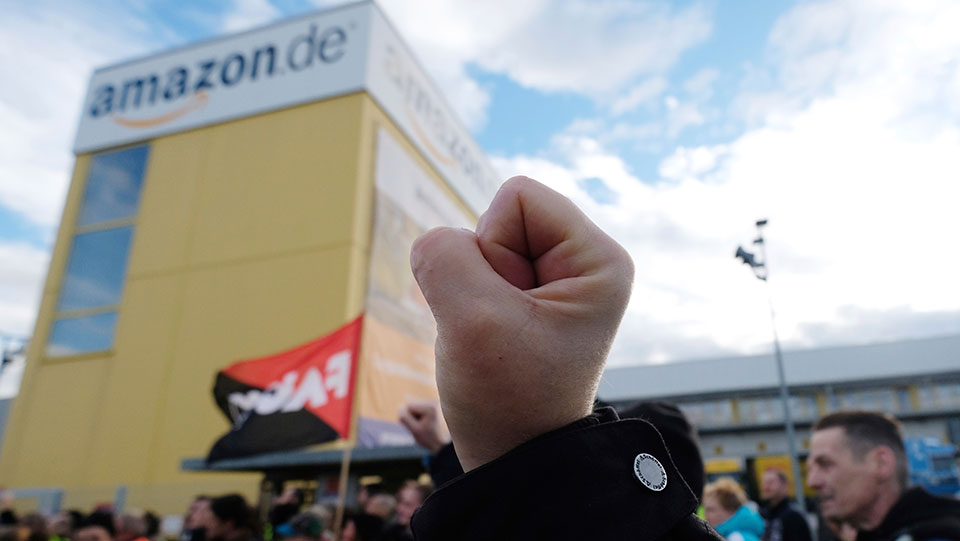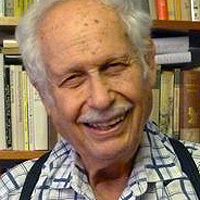
BERLIN — The survival of polar bears, we know, is sadly threatened. The survival of a more colorful bear species seems assured. HARIBO (an acronym of HAns RIegel BOnn), which makes those little “gold bears” sweets, was founded in a laundry room in 1920. A century later, its jolly producers assure us, 100 million Goldbears and other “gummies” in many shapes and colors bring joy daily to consumer hearts in over 100 countries: “Kids and grown-ups love it so—the happy world of HARIBO!”
But sadness can intrude here too. In Wilkau-Hasslau (in southern Saxony, pop. 9,656), the candy factory was a main employer since 1898. Publicly-owned in the socialist GDR until 1990, it offered about 300 jobs. With German “unification” HARIBO took over and cut that in half. Now its West German owners decided to shut down their only remaining plant in East Germany; modernization of their plant near Bonn makes it superfluous. Neither 13,000 protest signatures nor pleas by the mayor or even Saxony’s Minister-President disturbed their “happy world”. The bitter locals could tell them where to stuff those cute little gummies!
HARIBO won success in a very small market niche. A renowned American firm is angling higher – for the entire world retail market! Amazon, in its German section, hires about 6,000 people plus 10,000 temporary workers for the current boom—and stubbornly defies union organization.
Break-through efforts are led by ver.di (an acronym for “united service employees”), Germany’s second-biggest union with close to 2 million members in dozens of mostly public-service occupations, from garbage collector to kindergarten teacher, railroad engineer, even journalist, and poet. Its fight to get Amazon to sign regional contracts like others in retail and e-commerce jobs, covering wages, health and safety provisions, now so urgent due to corona, faces two disadvantages. One: Amazon’s provisional hiring system with its promise of permanent jobs for those who work hardest, squeal least, and avoid any whisper of unionizing. The other: Amazon’s ability to find local scabs but also to switch to warehouses and supply systems in Poland. Every effort is now being made to develop international solidarity. When about 2500 Amazon workers in six locations went on a three-day strike timed to disrupt “Black Friday” sales, a ver.di spokesman said it was a “higher number than in the past and, despite difficulties caused by the pandemic, a big success.” But the hard fight against the world’s wealthiest capitalist, wily Jeff Bezos, must slug on.
Last Sunday I joined up with a bigger, far tougher fight. Some 500 of us gathered between Chancellor Angela Merkel’s Chancellery Building and the Reichstag, where the Bundestag convenes. The rally, organized by the peace movement with a motto best translated as “Don’t Arm, Disarm!” called on legislators to reject a big hike in the armament budget, now up for debate. The finance plan for 2021 faces a giant deficit to cover losses due to tightening pandemic restrictions, compensating workers without work, and hotels, shops, restaurants, and theaters without customers. All the same, the ruling coalition of Christian Democrats (CDU and CSU) and Social Democrats (SPD) is charging ahead with its aggressive plans, including new multipurpose frigates for the German navy, its largest surface warships since World War Two, transport helicopters for NATO, 38 Eurofighter planes at 5.5 billion euros each. Add on faster Tornados for the base in Büchel, ready at any moment to pick up the twenty American atomic bombs storaged there, speed eastward, and drop them on Russians. Each one has a destructive power up to thirteen times that of the Hiroshima bomb—which killed 70,000. The plans look more and more like one more war. It would be the last one!
Also under debate is a decision on drones. The Bundeswehr [unified German armed forces] already use unarmed ones; debates about whether to buy killer drones from the USA or Israel or to produce German ones would bury basic ethical questions; should GIs sitting comfortably in Florida or Nevada be able to kill citizens of Afghanistan, Somalia, Niger or elsewhere, without trial, by using the giant U.S. Army base and drone relay station in Ramstein, Germany? Seen by many as a violation of German law, Bundestag [parliament] decisions, and morals, this is being fought out in the courts. Should German drones do the same?
Such questions of war and peace, so crucial to the world, were a heavy burden for our little crowd, freezing in the icy December air near the Spree River and watchfully monitored by omnipresent cops making sure we wore face masks and stayed a meter and a half apart.
After so many peace rallies over the years, valiantly organized but with mostly familiar, largely aging faces, one might wonder whether it was worth it. I admit to chickening out after two hours before they stretched a symbolic blue band to the Reichstag building (but not, as was hoped, encircling it).
But before I limped off I noted some hopeful omens. Best of all, the unions were very visible. Not only big, leftish-leaning ver.di, the adversary of Amazon, but the teachers, too, and IG Metall, with over two million members the biggest in Germany and, it claims, in the world. And the main speaker was Reiner Hoffmann, head of the entire union federation, the DGB, comparable to the AFL-CIO, who warmed at least our hearts with the fact that, though small in size, similar peace rallies were taking place that same day in nearly 100 towns all over the country—with many union members.
Crucial as they are, it wasn’t only the unions. Leaders of Fridays for Future, the brave hockey-playing kids group, also Greenpeace and other ecology organizations were now supporting “Don’t Arm, Disarm!”—opposing more billions for weapons. While virus fears and icy winds kept numbers too low to encircle the huge Reichstag, a growing unity might influence some inside who would be voting.
Maybe some, and every voice counts, but reality dispels any illusions. For who were they? It may not be easy for Americans, used to two main parties for 160 years, to decipher the scene here, with so many trying to balance the boat—and steer it. You may feel as mixed-up as that late great wit (and baseball catcher) Yogi Berra when he ordered a snack: “You better cut the pizza in four pieces because I’m not hungry enough to eat six.” And in fact, there are six caucuses in the Bundestag.
The far-right Alternative for Germany (AfD) featured angry name-calling at its recent congress between one faction, almost openly fascist, and the other which chooses to mask its position behind a bourgeois, coat-and-tie approval of democratic methods (deceiving nobody but an unusually accommodating media). Its rabid in-fighting helped cut its popularity from 12-13% down to 9-10%. Of course, both its factions favor more armaments, lots of them, as modern and heavy as possible.
The smallest of the six parties, the Free Democrats (FDP), with its genteel, pro-business right-wing stance, also favors armed drones and any other modern “security” measures.
The strongest caucus, Merkel’s Christian Democrats (CDU) with its sister party, Bavaria’s Christian Social Union (CDSU), always pushes for more weaponry. Annegret Kramp-Karrenbauer, Minister of Defense, has made it clear; Germany must lead Europe as a NATO equal in a renewed transatlantic partnership with the new Biden government, one based on nuclear weaponry. And despite the financial strain caused by corona, it must keep developing new European weapons like the Eurofighter, the NH90 helicopter, and the Eurodrone. Some generals already discuss their future use.
What about the Greens? This once young, left-leaning party has slithered further down a slippery slope. It grew fast after the Fukushima catastrophe in 2011, achieving second place in popularity, but success has had dire results. Its stress on environment is degrading into well-phrased schemes hatched out with big industrial companies; its participation in eleven state governments, six of them with the CDU, has had few notable results. In Baden-Wuerttemberg, it heads the government and maintains a cozy friendship with the auto giant Daimler-Benz. Most shocking for many old stalwarts is in Hesse, where it joined its CDU government partner in using tough police to break up 400 road blockades and a hundred tree houses trying to block the destruction of part of a 300-year-old oak and beech forest to make way for a highway expansion.
Even more important, the Green leaders have abandoned earlier anti-military principles and become the most fervent adherents of East-West confrontation. On trade? “We Greens in the Bundestag are calling on the Federal Government to abandon its support for the Nord Stream 2 pipeline and to stop construction…No deals with Putin!” On cooling off tension? “If we are in the next government we must meet with Macron to discuss robust European military deployment.” And weapons? “What matters are NATO capabilities.“ But not all the members are going along.
How about the Social Democrats, still paired with their traditional CDU rivals in a coalition government? Their poll ratings have slipped catastrophically to only 15% (the CDU-CSU are at 35%, the Greens at 19%). In this past year, their new co-chairs and a few deputies made daring statements opposing U.S. atomic bombs at the base in Büchel—or any atomic bombs. But the party’s powers-that-be, somehow reminiscent of the Democratic leadership in Washington, are busy squashing such mutiny, and men like Vice-Chancellor Olaf Scholz and Foreign Minister Heiko Maas seem to have the stronger biceps. We will see what influence the peace movement has had when the votes are taken.
And the LINKE, the Left? It remains the only party consistently voting against rearmament and military adventures. But it has dropped to an 8% low. It, too, has sharp disagreements; some leaders want to drop full opposition to NATO membership and foreign military deployment, conditions demanded by the SPD and the Greens for joining it in a coalition government. At present, the polls would not give these three the necessary 50% anyway, and many in the LEFT insist that such compromises would end their party’s role as the only genuine peace party. In this coming year of elections in many states and nationally in September, lots of switches and turns may be expected. Next to colossal corona-connected economic problems, war and peace will be a basic, fateful factor.












Comments